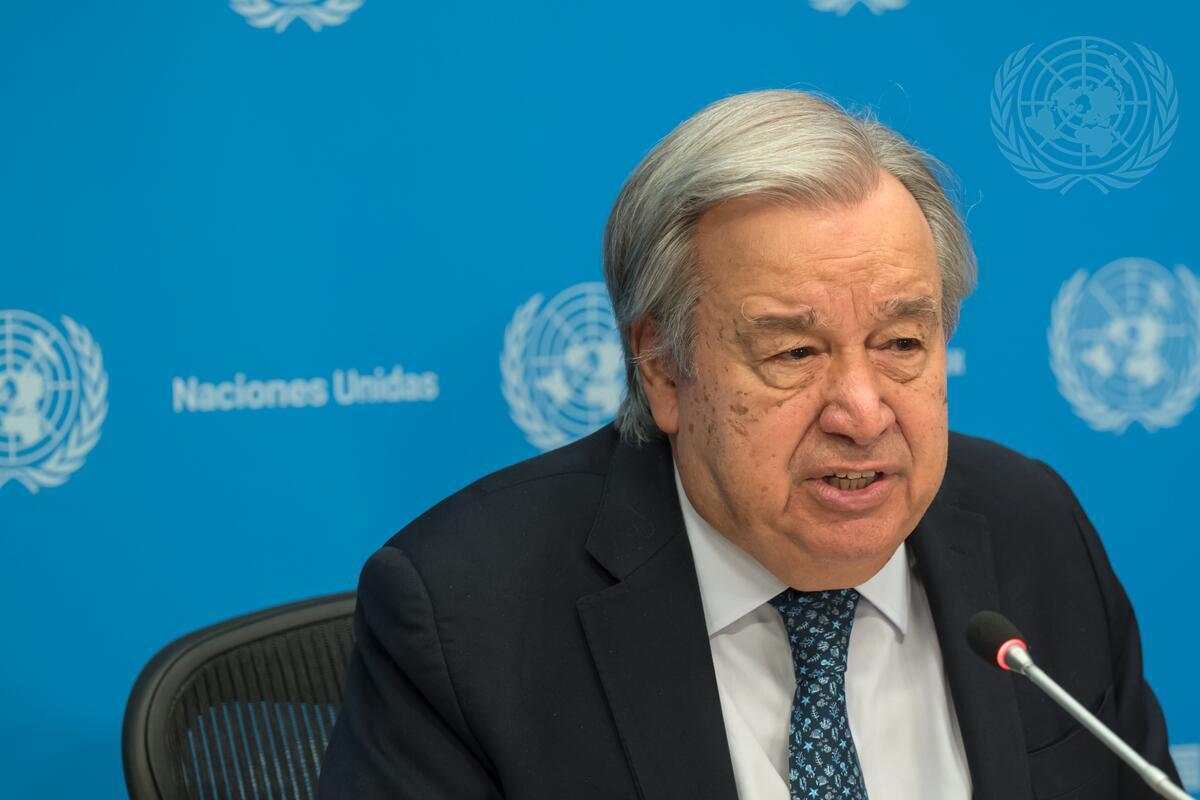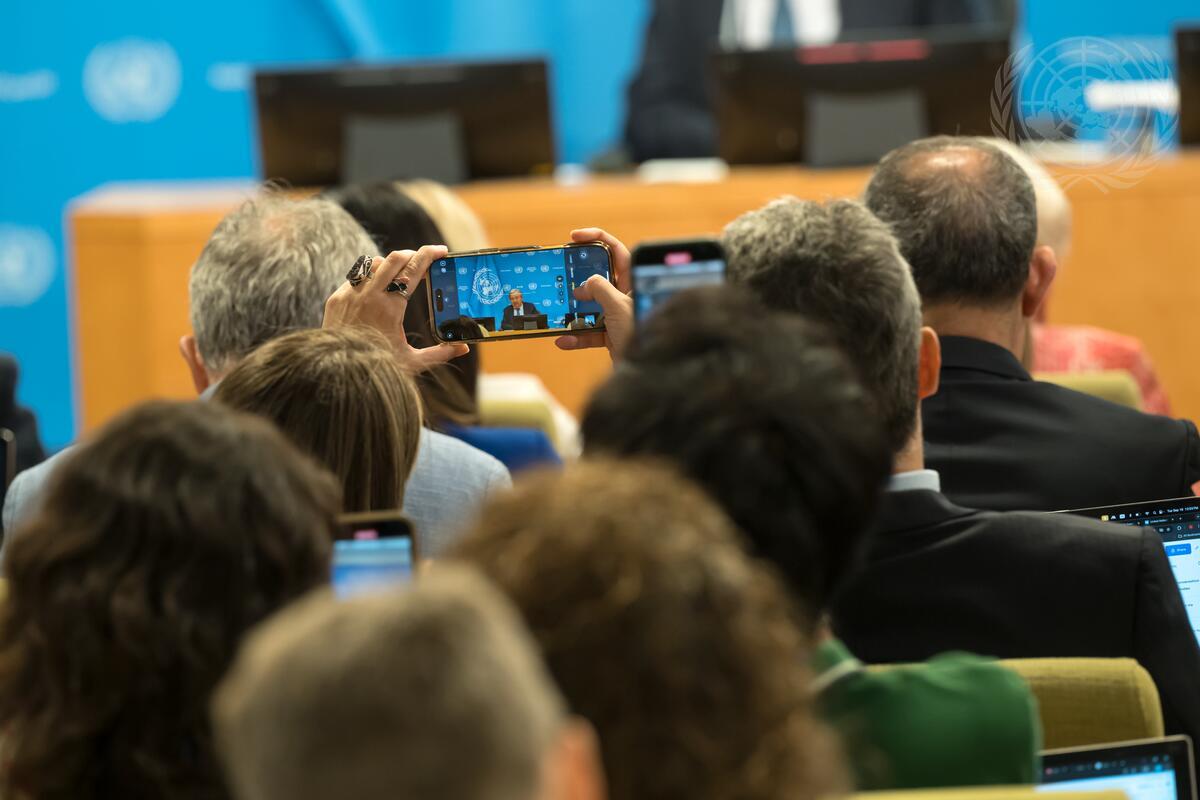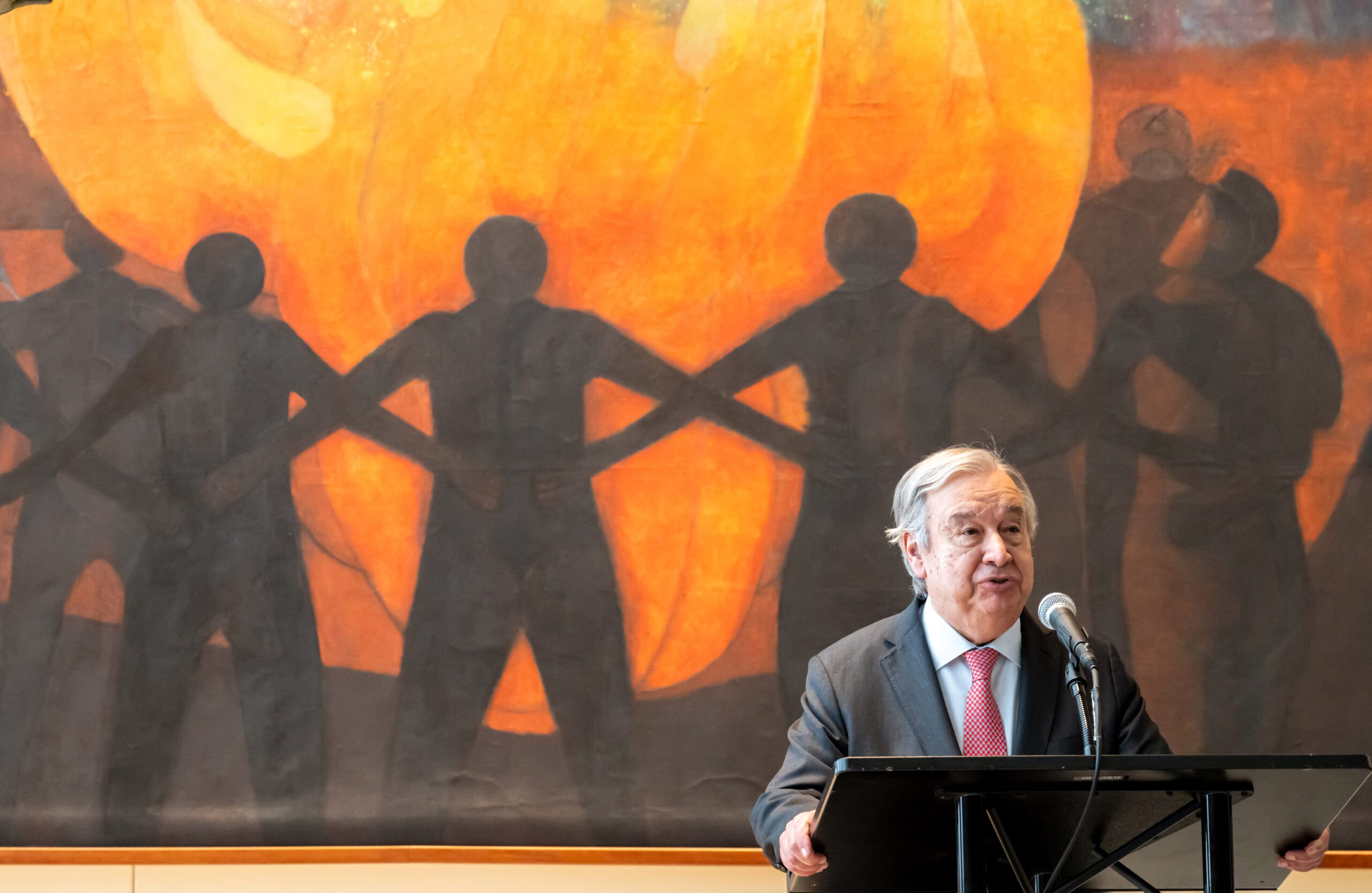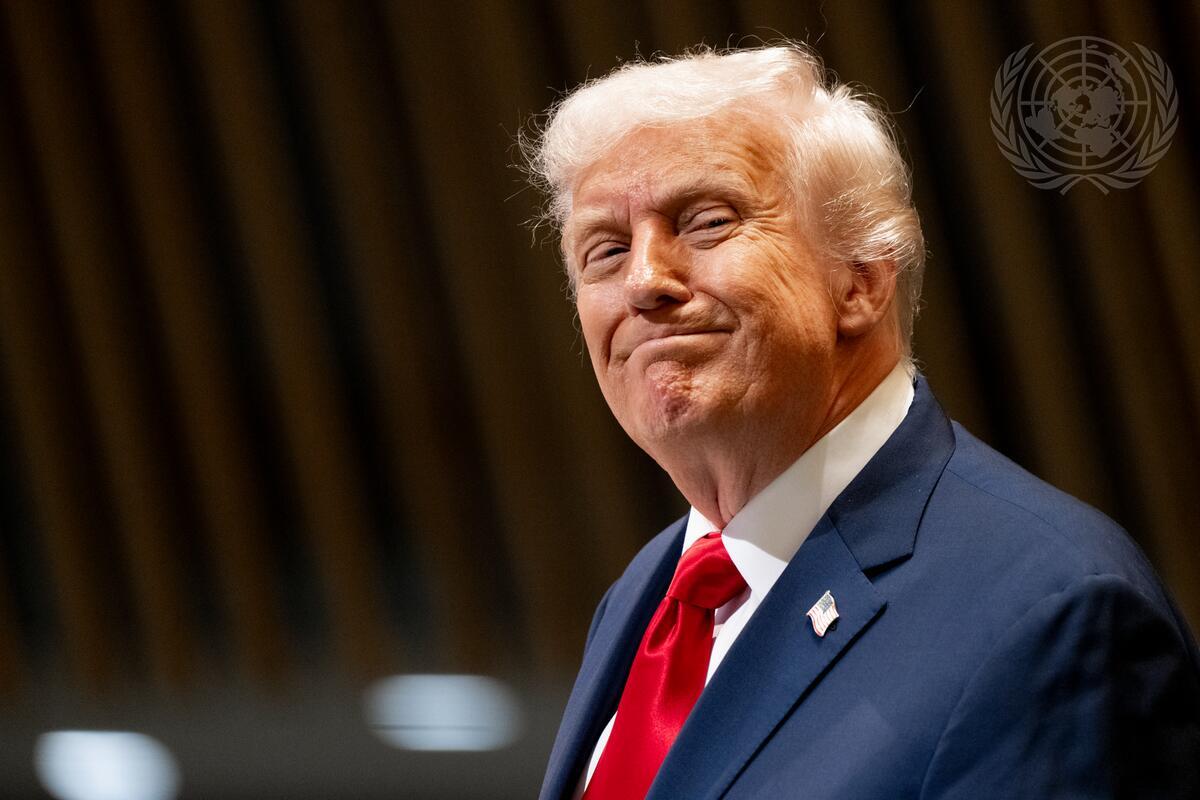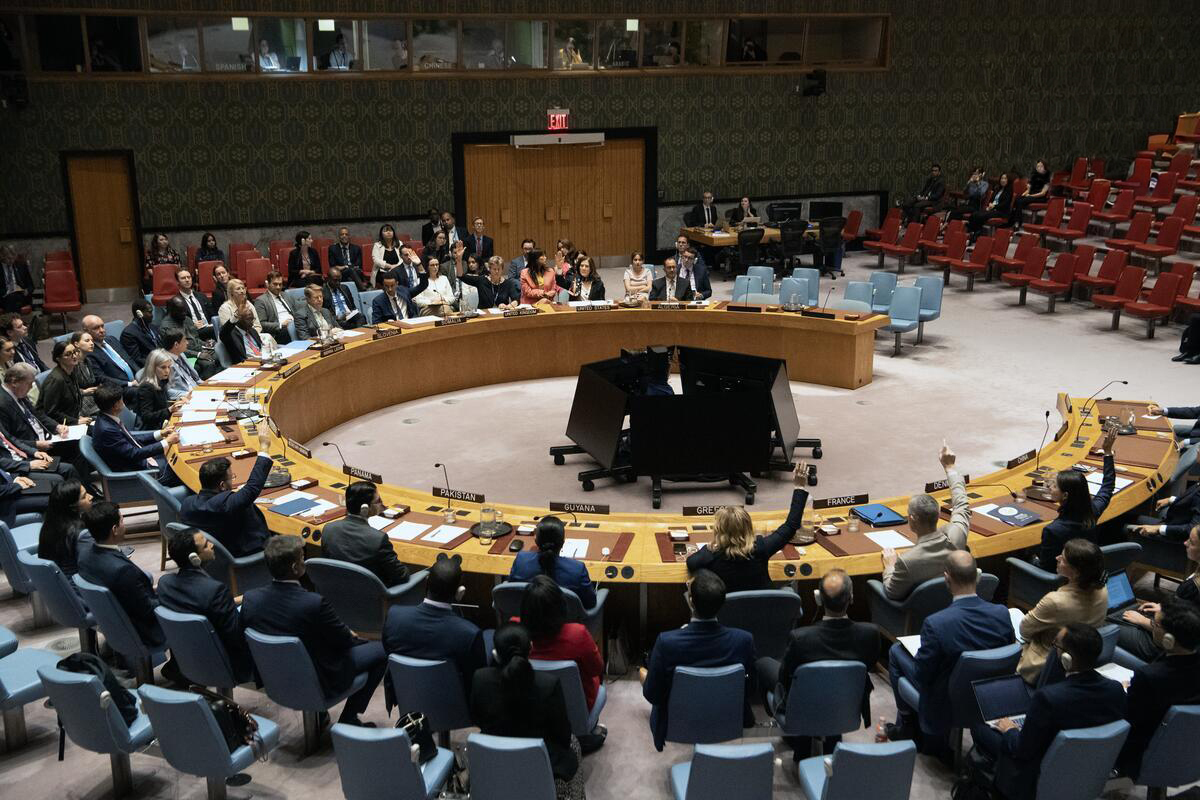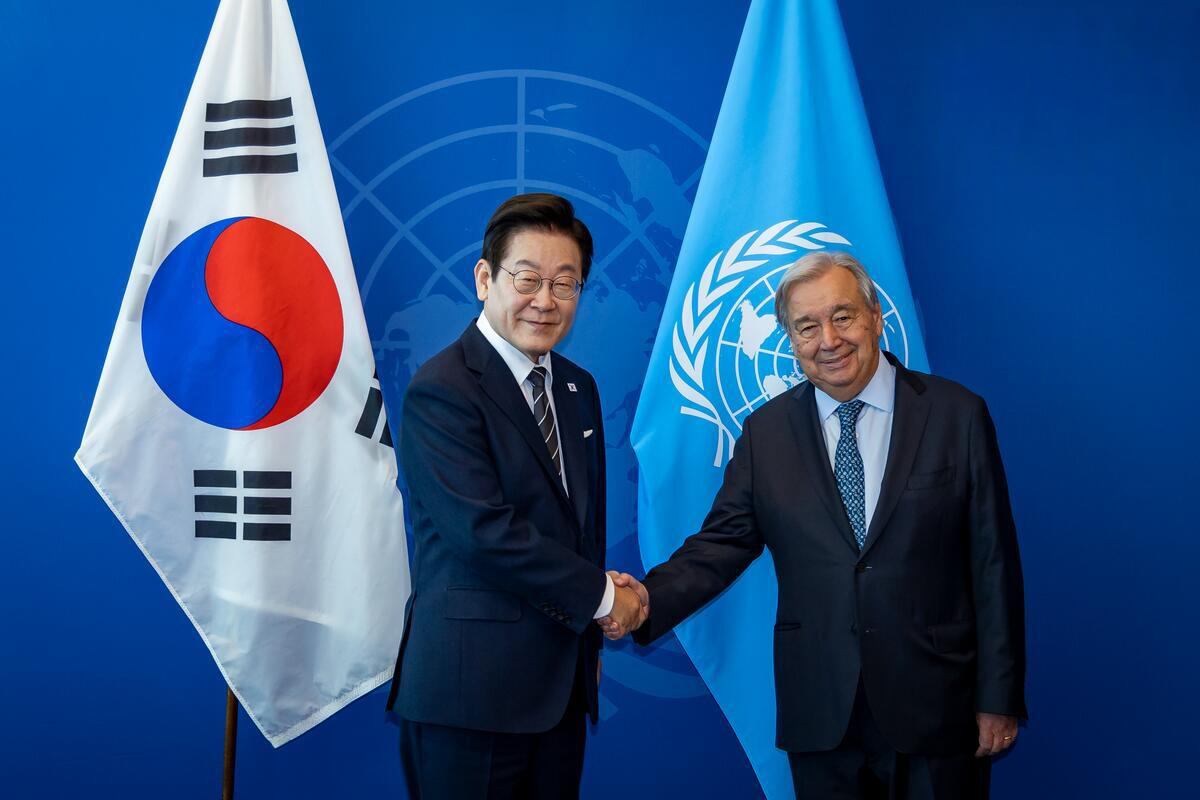As the United Nations opens its 80th General Assembly this week, Secretary-General António Guterres stood before journalists in New York and delivered a blunt assessment:
The world is drifting toward “an endless nightmare” of conflict, inequality, and institutional paralysis.
His words were not just a curtain-raiser for a week of diplomacy, but a stark reminder of what is at stake when more than 150 heads of state gather under the UN’s blue flag.
Gaza: “A Nightmare Without End”
The Secretary-General’s most urgent appeal centered on Gaza. Nearly a year into the war, with civilians trapped between bombardments and blockades, Guterres painted a grim picture of humanitarian collapse. Aid, he insisted, must be allowed “at scale,” and hostages must be freed without delay. But beyond immediate relief, his call reached further: the only path forward, he said, is “a just, lasting peace based on two States — Israel and Palestine — living side by side in security and dignity.”
It was both a moral plea and a political gamble. With divisions deepening among global powers over the conflict, Guterres sought to re-anchor the debate in the UN Charter’s principles.
“We are living a nightmare without end,” he began, referring to Gaza. His voice, though calm, carried an unmistakable edge. Nearly a year of bombardments and blockades has left civilians caught in what Guterres called “a humanitarian collapse.” The international community, he insisted, must move beyond expressions of concern to allow aid in “at scale” and secure the release of hostages. But the real challenge, he said, was political: “The only way forward is a just, lasting peace — two States, Israel and Palestine, living side by side in security and dignity.”
The room scribbled notes, but the silence said more. Reporters knew his words would ricochet through capitals already divided on the issue.
The Charter on Trial
If Gaza exposed the UN’s impotence, Ukraine symbolized its defiance. Guterres reiterated that Russia’s invasion violates international law and warned against normalizing aggression. “Respect for sovereignty is non-negotiable,” he said firmly. Yet, with the Security Council repeatedly paralyzed by vetoes, his appeal underscored the contradictions of an institution unable to enforce the very norms it was created to uphold.
From Gaza, Guterres pivoted to Ukraine. The war there, too, was not just about territory but about the survival of principles the UN was built on. “Respect for sovereignty is non-negotiable,” he said, reminding the world that Russia’s invasion remains a direct violation of international law. Yet here again, the paradox of his office hung in the air: the UN condemns, but cannot compel. The Security Council, shackled by vetoes, has been unable to act decisively — a failure that Guterres himself admitted has left the institution “paralyzed by divisions.”
A Birthday With No Cake
The 80th session of the General Assembly should have been a celebration, a moment for the UN to take stock of its achievements. Instead, it feels like a reckoning. Guterres spoke less like a host welcoming dignitaries to a party and more like a doctor delivering a diagnosis.
The Security Council no longer reflects “today’s geopolitical realities,” he said, and the world cannot afford to let reform languish. The UN80 initiative, he insisted, must deliver “concrete proposals by 2026.”
The implication was clear: without change, the United Nations may survive as a building, even as a stage — but not as the beating heart of multilateralism.
Beyond the Battlefields
Yet Guterres refused to let war monopolize the stage. He widened the frame to what he called “the defining challenges of our century.” Inequality continues to hollow out societies; the climate crisis is accelerating, leaving behind scorched earth and displaced millions; and artificial intelligence is evolving faster than governance can keep up.
Each issue, he suggested, is a piece of the same puzzle: a fraying social contract, a widening gulf between promise and delivery. Financing for sustainable development remains inadequate, and trust in institutions is at a low ebb. His words carried an implicit warning: leaders can gather, speechify, and pose for photographs, but unless they translate rhetoric into action, the trust gap may become unbridgeable.
A Plea in Blue and White
As the questions wound down, Guterres’ tone softened, though not with optimism.
“We cannot afford business as usual,” he said, his eyes moving across the room of journalists who would, within hours, condense his words into headlines. “The world looks to this Assembly for solutions, not stalemate.”
In that moment, the 80th General Assembly felt less like a ceremonial gathering and more like a last chance — for Gaza, for Ukraine, for the credibility of the UN itself.
By the time he left the podium, aides were already guiding him toward bilateral meetings, and the buzz of the corridors returned. But his warning lingered. In the diplomatic theater of New York, where handshakes are staged and speeches scripted, Guterres had offered something rarer: a plea stripped to its essence. Not celebration. Not ceremony. Just urgency.
The question now is whether anyone in the General Assembly will listen.

